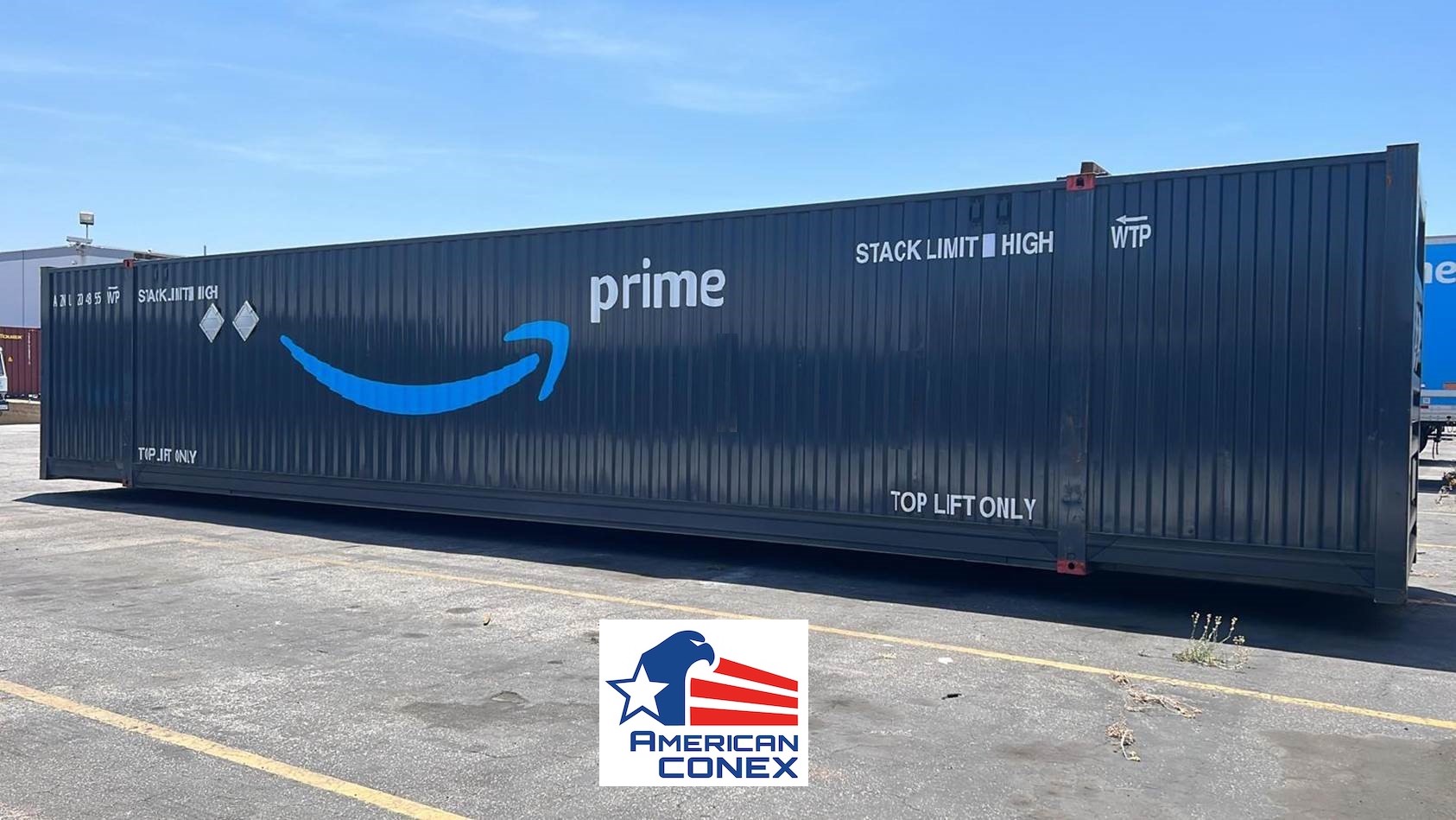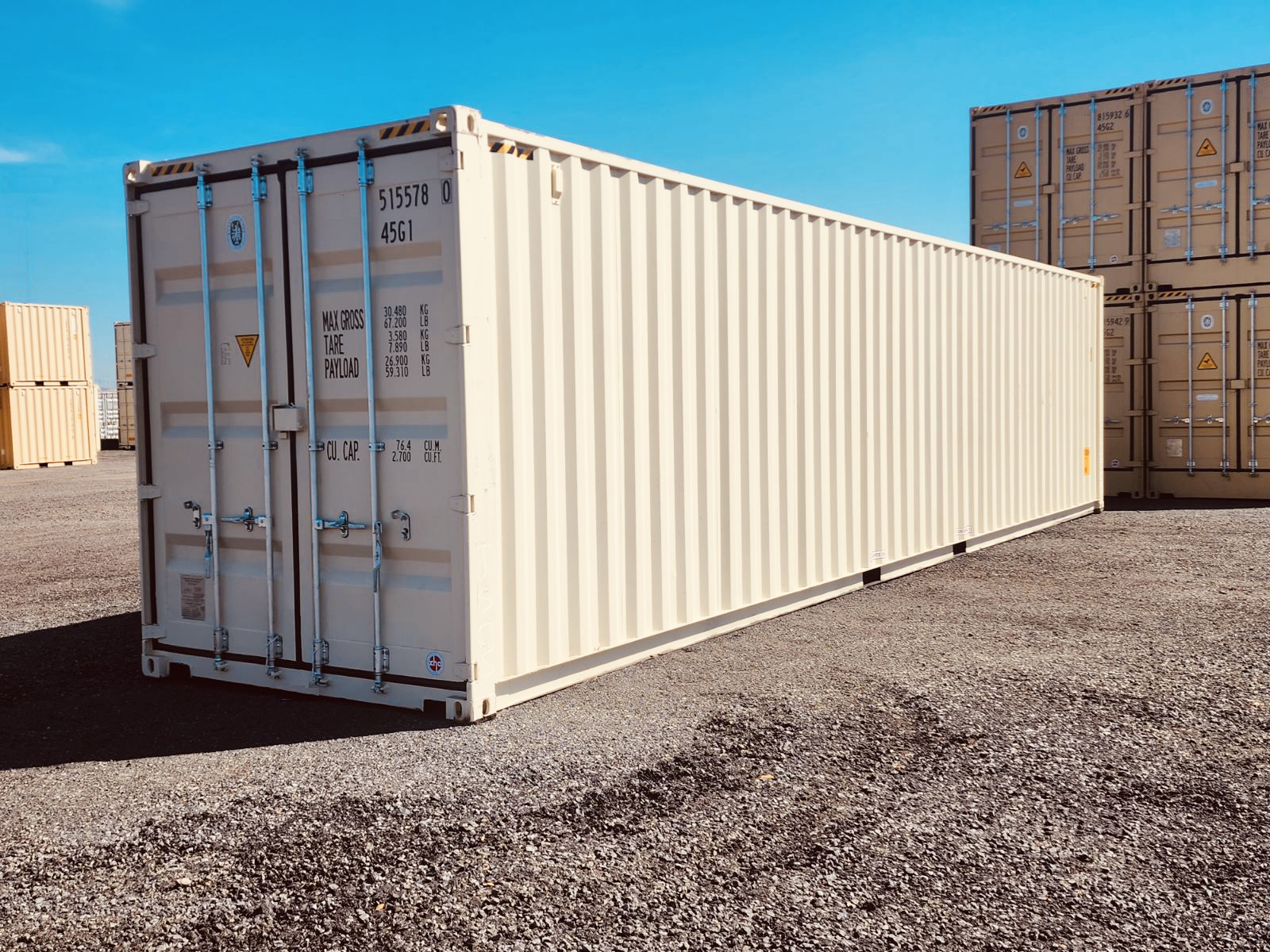The Ultimate Overview to Selecting the Right Delivery Container for Your Requirements
When it concerns picking the ideal delivery container, understanding your specific requirements is crucial. You'll wish to think about elements like dimension, kind, and material to assure you make the best option. From basic dimensions to specialized options, there's a whole lot to explore. Plus, budgeting for both the container and any kind of modifications can make a huge distinction. Let's break down the crucial aspects to help you discover the excellent fit for your demands.
Recognizing Shipping Container Sizes
When you're selecting a delivery container, understanding the various sizes readily available is vital for making the right decision. Shipping containers commonly come in conventional sizes of 20 and 40 feet, yet you'll also discover various other measurements. Knowing the size you need depends on what you plan to store or transport.If you're relocating smaller products, a 20-foot container could be perfect, while larger shipments commonly need a 40-foot container. Maintain in mind that the elevation can likewise vary; high cube containers provide additional vertical space, which can be beneficial for taller goods - Buy New Shipping Container 40' x 8' x 9’6".Before making a decision, measure your cargo, and take into consideration just how much room you'll require for packing and discharging. Always consider possible future requirements-- choosing for a slightly bigger container might conserve you headache down the line. Eventually, selecting the best dimension will enhance effectiveness and ensure your products are protected during transit
Kinds of Delivery Containers Available
There are numerous kinds of shipping containers available, each created for certain functions and cargo requirements. The common dry container is versatile, ideal for basic cargo. If you're delivering disposable items, think about a refrigerated container, which preserves a controlled temperature level. For extra-large items, high cube containers offer extra elevation, suiting taller loads.If you need to move hefty machinery or tools, level shelf containers offer a strong base without wall surfaces. On the other hand, open-top containers allow for simple loading of high freight, with a detachable tarp covering for security. If you're trying to find adaptability, consider a collapsible container that can be quickly saved when not in use.Lastly, specialized containers like storage tank containers are utilized for fluids, while vented containers are designed for bulk freight that needs air flow. Recognizing your cargo type will assist you pick the right container to satisfy your delivery requires successfully.
Material Considerations for Durability
When picking a shipping container, the material plays an important function in its longevity. You'll wish to weigh the advantages of steel versus aluminum, particularly pertaining to deterioration resistance. Understanding these factors can help you make a much more educated option for your shipping needs.
Steel vs. Light weight aluminum Containers
How do you select between steel and aluminum containers for your shipping needs? Begin by taking into consideration sturdiness. Steel containers are durable and offer outstanding strength, making them perfect for heavy lots and harsh problems. They stand up to damages from effects and are commonly more economical, which can be a major variable for budget-conscious buyers.On the various other hand, aluminum containers are lightweight, which can conserve you on delivery expenses. They're simpler to maneuver and are a great option if you need to transport items often. Nevertheless, aluminum is usually a lot more costly and much less durable than steel. Weigh your specific demands carefully, consisting of weight, expense, and the kind of freight you'll be shipping, to make the ideal option for your circumstance.
Deterioration Resistance Aspects
Choosing the appropriate product doesn't simply include weight and expense; corrosion resistance plays a significant duty in toughness. When choosing a delivery container, think about the atmosphere it'll face. Steel containers, while solid, can corrosion if not effectively treated. Seek options with safety finishings or galvanization to boost their life expectancy. Light weight aluminum, on the other hand, supplies natural deterioration resistance, making it excellent for coastal locations or damp problems. It can be much more expensive. In addition, evaluate the container's usage-- if it'll be revealed to chemicals or severe weather condition, focus on products that can endure these problems. Purchasing a corrosion-resistant container currently can click here to find out more conserve you from costly repair services or substitutes down the line. Pick carefully for lasting benefits.
Alterations and Modification Options
Delivering containers aren't simply for transporting goods; they can be transformed to fulfill your specific demands via numerous alterations and modification choices. You can transform a common container right into a relaxing workplace, a short-term retail store, and even an individual fitness center. The possibilities are nearly endless.Think concerning including windows, insulation, or ventilation to boost comfort. You might additionally take into consideration electrical wiring, pipes, and even customized shelving to enhance capability. If protection's a problem, enhanced locks can supply peace of mind.For visual charm, you can paint the container or include a distinct design to make it attract attention. Don't forget concerning flooring alternatives-- whether you want long lasting plywood or something a lot more advanced, it can boost the space.Ultimately, tailoring your delivery container to fit your needs can improve functionality and develop an one-of-a-kind setting that mirrors your design.
Evaluating Your Transport Requirements
When it involves utilizing your changed shipping container, comprehending your transportation requires is vital. Beginning by determining what you'll be shipping-- whether it's heavy devices, retail products, or personal things. Each kind of freight has various demands concerning size, weight, and accessibility.Next, think about the range and setting of transportation. Are you delivering locally, nationally, or worldwide? This affects the container's style and capability. If you're using trucks, ensure your container fits basic measurements for very easy loading and unloading.Additionally, think concerning transit problems. Will your things need special security from climate or temperature changes? If so, you may require insulation or ventilation features in your container.Lastly, evaluate just how commonly you'll be transporting goods. Regular deliveries might call for an extra durable and flexible container to fulfill continuous needs. By dealing with these aspects, you'll be well-prepared to choose the ideal delivery container for your requirements.
Budgeting for Your Delivery Container
Setting a spending plan for your shipping container is necessary for making sure a smooth acquiring procedure. Determine how much you can afford to spend. Bear in mind that prices can vary substantially based upon dimension, condition, and type. New containers generally cost much more, but used ones can offer substantial savings.Next, think about any type of extra costs you might incur, such as transport costs, shipment charges, and modifications. If you intend to personalize the container, aspect in those Click This Link expenses too. Study different have a peek at these guys providers to compare prices and locate the finest offer that satisfies your needs.Don' t fail to remember to include any type of licenses or laws that might relate to your acquisition and use of the container. By clearly describing your spending plan, you'll be better prepared to make educated choices, guaranteeing you obtain the appropriate container without breaking the bank.
Maintenance and Treatment for Longevity
To ensure your shipping container lasts for several years, normal upkeep is key. Beginning by examining the exterior for corrosion, damages, and damages. If you spot any kind of problems, address them immediately to stop additional degeneration. Clean the container occasionally, both in and out, to get rid of dirt, particles, and wetness that can result in corrosion.Ensure the doors seal appropriately and lubricate the hinges to stay clear of rust and sticking. If you're utilizing the container for storage space, consider including air flow to reduce moisture and mold and mildew growth. For additional defense, apply a rust-inhibiting paint or sealant annually.If your container's situated in a rough environment, like seaside locations, you might require to raise maintenance regularity. Maintain an eye on the floor covering, as well; any type of indicators of wear should be repaired right now. With these straightforward steps, you'll extend the life of your shipping container substantially.
Frequently Asked Questions
Exactly how Do I Locate a Dependable Delivery Container Distributor?
To locate a reliable shipping container vendor, beginning by investigating on-line reviews, asking for recommendations from close friends or industry contacts, and comparing prices. Always inspect their credentials and assurance they use top quality containers that fulfill your demands.

Can I Lease a Shipping Container Instead of Acquiring?
Yes, you can absolutely lease a delivery container as opposed to purchasing one. Several distributors provide rental alternatives, which can conserve you cash and give adaptability if you just need it for a short period.
What Allows Are Required for Container Placement?

Are Delivery Containers Weatherproof and Ideal for Outdoor Storage Space?
Yes, delivering containers are usually weatherproof, designed to withstand severe conditions. Their robust construction keeps your products protected and dry, making them suitable for exterior storage. Simply ensure proper air flow to stop moisture build-up inside.
How Do I Deliver a Delivery Container As Soon As Acquired?
